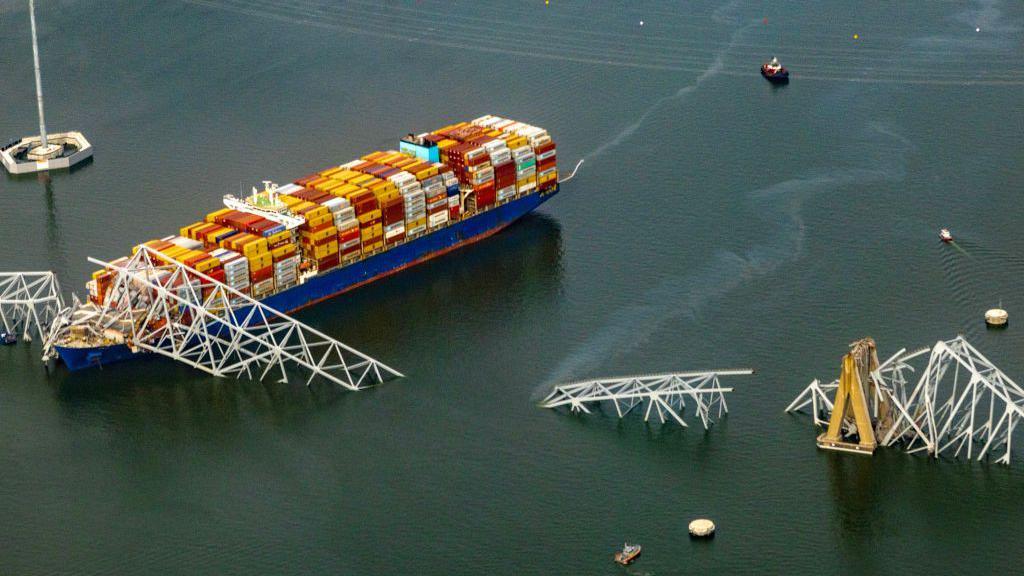US gets $100m settlement for Baltimore bridge collapse

- Published
The owners of a container ship that crashed into Baltimore's Francis Scott Key Bridge have been ordered to pay the US government more than $100m (Β£77.1m) in damages, the US justice department has announced.
Grace Ocean Private Limited and Synergy Marine Private Limited, the companies that owned and operated the Dali have agreed to pay, resolving a month-long civil lawsuit.
The justice department called the 26 March collision that killed six and sent tonnes of debris into the river "one of the worst transportation disasters in recent memory".
Payment will go to the US Treasury and other federal agencies directly affected by the collision or involved in the response.
βThis is a tremendous outcome that fully compensates the United States for the costs it incurred in responding to this disaster and holds the owner and operator of the Dali accountable,β said Brian Boynton, head of the justice departmentβs civil division, in a press release on Thursday.
The department said the settlement does not include any damages for the reconstruction of the Francis Scott Key Bridge. The state has filed its own claim for those damages.
The US blamed the incident on electrical and mechanical systems failures on the ship. It alleged the Dali was inadequately maintained, which it said caused the ship to lose power and crash into a bridge column.
Six men - all construction workers fixing potholes on the bridge - died when they were plunged into the water after the container ship hit the structure.
The Dali's collision sent tonnes of debris into the Patapsco River, freezing traffic for months at one of the busiest ports in the US.
In response, the US coordinated dozens of federal, state and local agencies to remove 50,000 tonnes of steel, concrete, and asphalt from the shipping channel and from the Dali, the justice department said.
The bridge collapse also caused "economic devastation" as shipping was brought to a standstill. The Port of Baltimore reopened in June for commercial navigation.
The incident also blocked a key route for local commuters.
Related topics
- Published14 May
- Published7 May